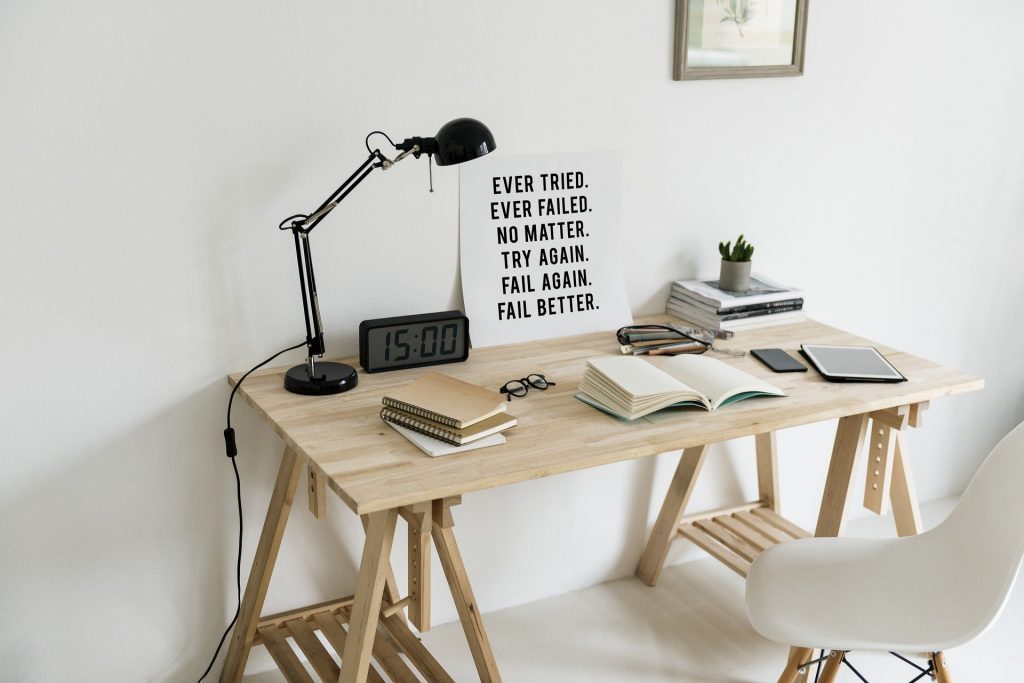In this interview on The Logros Show – in association with The Greater Manchester Chamber of Commerce – Lee Dinsdale talks to Richard Holmes from Westfield Health – about health and wellbeing strategies for employees.
Interview with Richard Holmes at Unity Radio – The Real Sound of the City.
Lee: This is the Logros Show and today we have, (over zoom) Richard Holmes. Richard is a director of wellbeing at Westfield Health and is a health and wellbeing expert. Can you give us a bit more of an introduction of yourself and what does Westfield Health provide?
Richard: I’ve been in the wellbeing industry for thirty years, I started out as a teacher and more laterally set up my own corporate wellbeing business which I built up and then sold to Westfield to become part of the Westfield Health Group. From Westfield’s perspective our purpose is to make a healthy difference to the quality of the life of our customers and the communities in which they live and work, that’s the corporate strapline by the way. What that really means to our customers is through our evidence based health and wellbeing solutions that we put into their workforces. We support communities in that we have a give back programme where we have donated over twenty million pounds over the last fifteen years to community based health and medical related charities.
Lee: Okay we will explore that shortly. The reason we invited you on to the show is that you are going to be giving some tips to business owners of all sizes, what they can do to implement some easy health and wellbeing strategies for their employees which is even more relevant now as we are slowly returning back to work. Firstly something that is going to appeal to everybody, Richard has a great website so if you get the chance head over to westfieldhealth.com and there is loads of tool kits and information to improve wellbeing. One thing that stood out to me straight away was the top ten tips for keeping you busy when in isolation, so obviously very relevant to the current climate. I’m going to ask you a few things that everybody can take on board and the first one is how to switch off. The brain is always ticking, the inner voice is always going, how do you switch off?
Richard: One of the biggest challenges that everyone has in this current situation is that most of us have moved to working from home if we are not on furlough. Suddenly we haven’t got a structure or a routine throughout the day that we used to have so we tend to overwork when we are working from home. Our days seem to be more intense so it’s very much about building a routine and structure to your day much like you would do in the workplace so you are pacing your day and then switching off at the end. Have a set time when you are definitely going to finish. Personally when I finish work I go and change my clothes and that’s my mental signal that I have now moved back into home life.
Our days seem to be more intense so it’s very much about building a routine and structure to your day much like you would do in the workplace so you are pacing your day and then switching off at the end.
Lee: Did you put your suit on when working from home?
Richard: I don’t put my suit on but I’ve got a collared shirt on! So there are tricks like that that can signal moving from one part of your life to another part of your life.
Lee: Relaxation and inspiration, which is one of the ideas on the site. What is a top tip?
Richard: We all need a bit of time out during the day to calm down the mind, and get focussed so just build a little bit of time for relaxation and that might not be taking the Zen position! For some of us its deep breathing and my preference is just getting out with the dog for a quick walk. Allow your mind to declutter and refocus so that you can go again, so build those little relaxation breaks during the day.
Lee: So for those that are working from home give us some tips to keep productive? I’ve noticed when I’m working from home it’s very easy to get distracted, get a cup of coffee and then all of a sudden I’m in a trance and the twenty minutes have gone.
Richard: Well actually it’s the reverse to what you are talking about. As humans we are designed to work in what we call an oscillating rhythm which is peaks of high intensity followed by periods of rest and recovery. We are not designed to work flat out through the day so by pacing yourself through the day with some recovery and relaxation brakes you will be more effective when you are operating at peak and you will be more productive because of it. Pace yourself, don’t go one hundred per cent flat out throughout the day.
Lee: I guess people are different but give us an idea of what that would mean in terms of time spent.
Richard: The optimum concentration span for the human brain is fifty minutes and then that concentration starts to wane. So if you are working on projects you are best doing forty five to fifty minutes, have a couple of minutes break then go back to it and do another forty five minutes. So short sharp blocks with small recoveries in between.
Lee: With lockdown, everyone’s has been different depending on their own personal circumstances. People are worried about work and the future and it’s very difficult to maintain a positive state. What are some techniques to manage worry?
Richard: Generally we get worried about things we perceive we cannot control and that’s what drives the anxiety. What we find when we study people we consider are more resilient, and we do that, is that they have a really good approach to it. There is a common myth that they say if I can’t control it why worry, but that’s a little bit glib. What they are actually saying is rather than get wound up about something I can’t control what can I focus on positively? How can I influence that thing from happening or more importantly if that is going to happen, what would be the consequences and how can I positively create a situation that leads to a better outcome?
Lee: That is very interesting the perceived level of control that you can have over your circumstance. It’s very easy to say to people, stop worrying because you can’t control it but if you are not that person you don’t know how someone feels. Can you improve your ability to worry less?
Richard: It is a learned skill. Some of us are naturally better at it than others, we are all different and we all see things differently. A lot of the coaching programmes we put into the workplace based on things like mental resilience are about coaching people how to learn the skill of dealing with worry and anxiety that bit better.
Lee: From a business perspective we are looking at the health of employees. Healthier employees are more motivated, business does better and people feel better so it’s an upward spiral of benefits, everyone is a winner so to speak!
Richard: Yes and the heart of what we do is not just supporting individuals within an organisation to change their behaviours to make healthier choices. It’s also about organisational health and supporting those companies to be as productive as they can be.
Lee: Give us some strategies that everybody can implement whether you have one, two, five or twenty staff?
The heart of what we do is not just supporting individuals within an organisation to change their behaviours to make healthier choices.
Richard: The biggest mistake that a lot of companies make is to assume that they know what they need. If your spend is limited then the wisest move is to understand exactly what your employees do want and need. The other way to maximize your investment is to focus on your culture. For wellbeing interventions to be really effective they need the right culture to support it so leadership is a big thing.
Lee: What would you say is the right culture? Everybody uses that word but culture can mean so many different things to so many people. What in your experience would you perceive to be the right culture within a business setting?
Richard: It is driven by a leadership that recognizes the benefit of wellbeing and creates an environment that is supportive of it and conducive to it. We talked about worry and you can go in and deliver coaching services to teach employees to cope better with worry but if that means doing things a little bit different or smarter, but they don’t feel they have permission to do that psychologically because of the culture within the organisation then that intervention is less effective.
Lee: So what you are effectively saying is the decision makers who are paying you to come in have to adapt and be flexible and be up for it. They have to believe in what they are doing and it is not just tick box exercising.
Richard: Yes and if it is just a tick box exercise I would say to those leaders just don’t waste your money, if you are not going to follow through don’t do it.
Lee: Yes and the world is going to change considerably now. The wellbeing of staff is going to become a higher priority as we move out of lockdown. So in terms of some strategies that every business owner could implement, what would some of your top tips be?
Richard: In the current situation right now a good start point for all businesses is to look at all the free support that we have currently available on our website. When you go to the website if you put in covid-19 there is a whole covid-19 resource centre there. There are loads of free factsheets that you can use to support your employees who are on furlough and working from home or are actually critical workers and still coming into the workplace. Also response plans for senior managers in terms of how you start to manage and deal with returning your people back to work.
Lee: If your budget is limited what are some of the simple things that you can do?
Richard: A really simple effective service that we provide and it gets cheaper the smaller you are as a business is something we call health campaign. That is where we provide you with a campaign pack based upon a particular topic and you run that mini campaign every month. That is educating and creating awareness within your workforce and there is a whole host of wellbeing topics. You select the topics because we have twenty seven to thirty of those to fit what your particular business needs and concerns are.
Lee: I know you have some health and wellbeing tool kits for businesses, out of those what would you say are some of the easier ones to implement?
Richard: If you are introducing wellbeing for the first time and you want to get your employers engaged with it the winners’ right from the outset are things like sleep and energy. Everybody has problems with sleep. Those topics are really big ones. If you have a concern about stress and worried about how your workforce is going to react, introduce those slightly later once you’ve got people engaged in the high engagement topics.
Lee: Do you advocate a bit of a power nap in the day for sleep? I remember a while back there were some businesses that had little sleep pods and you could go for a nap and them come back turbo charged!
Richard: You would be surprised how many organisations have those. It takes a bit of enlightenment doesn’t it if you are the leader of a business to say, am I going to give my people time off to have a kip during the day? Well actually going back to what I was saying before we are humans, we are designed to work in high bouts of intensity followed by rest and recovery. So if I have people not necessarily in a sleep pod but they are having a rest and I know they are resting so that they can peak at the right time and perform better doing that and I get better performance and productivity out of them, why wouldn’t I do it?
It takes a bit of enlightenment doesn’t it if you are the leader of a business to say, am I going to give my people time off to have a kip during the day?
Lee: I’ve just had a few flashbacks to previous lives and not everybody works at a desk, but let’s say you are at your desk at three o’clock and you feel that coma coming on! You spend an hour fighting off that sleep feeling and it would be much quicker to get it out of the system, have a quick ten minutes nap and then be good to go again.
Richard: Yes and you would be more productive. Now we have to recognise that in some workplaces that isn’t always possible. For you in the radio on your show, probably wouldn’t be advisable. For a lot of people there are ways of managing you workflow on an hour to hour, day to day, week to week basis and if we just think a bit differently, we can work a bit smarter and we can get more out of people by working smarter.
Lee: What would you say is your top tip for a business owner that they could implement to generally improving wellbeing for the staff?
Richard: Top tip is leadership. You don’t have to buy wellbeing services in. What makes us all feel well is feeling valued in a good social community and that we believe in what we are doing. For lots of us we get meaning out of life through the work that we do. How can we as leaders make that as pleasant as possible for people so that they feel as well as they possibly can?
Lee: You mentioned that you were a teacher and then went on to set up your own business and then sold the business to Westfield Health so I just want to touch up on those three things. Why is wellbeing important to you?
Richard: For me it’s all about being the best you can be yourself. Without being well you can’t do it. We are not saying that people are not actually physically moving but they are not involved in activity levels that would be at an intensity like a brisk walk that would then increase your fitness levels. Also they are not consciously planning to commit to an exercise programme of some sort however low intensity that might be. I’m not necessarily talking about people going to the gym, but it’s going for a brisk walk, going on your bike and those types of things. The counterbalance of that is in terms of desk life thirty two percent of people in Manchester were sitting for more than nine hours a day. The average is twenty six.
Lee: So what does that mean, can you put that into context?
Richard: So what we are now referring to is sitting is the new smoking. Our levels of sedentariness – for want of a better phrase is a huge risk factor. We’ve seen that obesity levels are dictating as well a significant risk factor for the impact that covid-19 will have on someone. Obesity is driven not just by bad food choices but by low physical activity.
Lee: Some people don’t have a choice if they are sitting down at a desk all day due to the nature of their work, how often should they get up and move?
Richard: We need to get up every thirty to forty minutes. It may be for a minute or two. If you are on the phone what stops you from standing up and talking on the phone? What stops you every so often from having a good stretch? Why at lunchtime can’t you pop out and do a fifteen minute brisk walk? What are you doing when you go to work and where are the opportunities for you to build activity into your life? If you work in an office block how many times do you use the stairs instead of the lift? It’s just simple and practical stuff that you can do all day but it just takes a bit of conscious thought and sometimes we are not really good at that.
Lee: So what would you say is the benchmark for knowing when you are doing enough physical activity?
Richard: The benchmark is roughly three sessions a week, roughly thirty to forty minutes and an intensity equivalent of brisk walking as a minimum.
Achieving Excellence

Lee: Brilliant. We are just going to wrap up with the strapline of the show which is achieving excellence. How do you go about achieving excellence from a business perspective?
Richard: For me it’s about moving beyond meeting client expectations, surprising and delighting them. Often an organization may engage our wellbeing services perhaps as a tick box exercise or because somebody has had a good idea. If off the back of the back that we can deliver significant changes of behaviour and engagement and create real changes in that organisations productivity, then I think we’ve started to touch on excellence.
Lee: Brilliant, thank you very much for coming in, I have really enjoyed today. Here at Unity Radio wellbeing is at the core of everything that we do so thank you very much. Again let me repeat if you can head to the website Westfieldhealth.com there is some fantastic toolkits there both from an employer perspective and also from an employee perspective. So what are the plans for the rest of the year for Westfield Richard?
Richard: Trying to deliver the services in this new environment and adapting our services to best fit employers’ needs as they return people to work.
Lee: With the Covid crisis you do have advice on your website, is that right?
Richard: Yes westfieldhealth.com/covid-19 is where you will find loads of toolkits to support employers in returning people back to work.
Lee: Thank you very much.
Article Transcription by Terry Capostagno
GET IN TOUCH
Take your first steps to Achieving Excellence with Logros. Call or email us for more details.
Complete and we will keep you updated with the latest edition of the “The Logros”.
t is not a question of what are you going to do just simply who do you want to be
Lee Dinsdale




